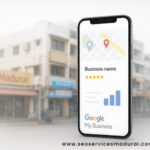Optimize Your Content with Keywords
Start by optimizing your content with relevant keywords. Research and identify keywords that your target audience uses. Incorporate these keywords naturally throughout your content. Avoid keyword stuffing, as it can harm your rankings. This is important for Best practices for improving SEO rankings.
Create High-Quality Content
High-quality content is essential for better rankings. Ensure your content is informative, engaging, and valuable to your audience. Use clear and concise language. Include images, videos, and infographics to enhance the user experience.
Improve Your Website’s Loading Speed
A fast-loading website improves user experience and rankings. Optimize your images and use a content delivery network (CDN). Minimize JavaScript and CSS files. Consider using tools like Google PageSpeed Insights to identify areas for improvement.
Enhance Mobile-Friendliness
With the increasing use of mobile devices, having a mobile-friendly website is crucial. Use responsive design to ensure your site looks great on all devices. Google’s mobile-first indexing prioritizes mobile-friendly websites, so this can significantly impact your rankings.
Utilize Internal Linking
Internal linking helps search engines understand the structure of your website. It also keeps visitors engaged by guiding them to related content. Use descriptive anchor texts and link to relevant pages within your site.
Optimize Your Meta Tags
Meta tags, including title tags and meta descriptions, play a crucial role in SEO. Write compelling and keyword-rich meta tags for each page. This not only helps search engines understand your content but also entices users to click on your link.
Focus on User Experience (UX)
A positive user experience can lead to higher rankings. Ensure your website is easy to navigate, visually appealing, and provides valuable content. Reduce bounce rates by offering a seamless user experience.
Leverage Social Media
Social media platforms can drive traffic to your website. Share your content on social media channels to increase visibility and engagement. Encourage social sharing to expand your reach and attract more visitors.
Build Quality Backlinks for Best practices for improving SEO rankings
Backlinks from reputable websites signal to search engines that your content is valuable. Focus on building quality backlinks through guest blogging, partnerships, and creating shareable content. Avoid spammy backlink practices, as they can lead to penalties.
Regularly Update Your Content
Keep your content fresh and up-to-date. Regularly update old posts with new information and insights. This not only improves your rankings but also keeps your audience engaged and informed.
Utilize Analytics Tools
Analytics tools like Google Analytics provide valuable insights into your website’s performance. Monitor your traffic, bounce rates, and user behavior. Use this data to refine your SEO strategy and Best practices for improving SEO rankings.
Engage with Your Audience
Engagement signals to search engines that your content is valuable. Respond to comments and questions on your blog and social media channels. Encourage discussions and interactions to build a loyal audience.
Explore Gegosoft’s Other Services
In addition to SEO, Gegosoft offers a range of digital marketing services to help your business thrive online:
Web Development: Custom websites tailored to your business needs.
Mobile App Development: Innovative mobile applications for iOS and Android.
Social Media Management: Comprehensive social media strategies to boost your online presence.
Content Creation: Engaging content that resonates with your audience.
Email Marketing: Targeted email campaigns to nurture leads and drive conversions.
FAQ
What are the best Best practices for improving SEO rankings?
The Best practices for improving SEO rankings are those that are relevant to your content and have a high search volume with low competition. Use keyword research tools to find these keywords.
How often should I update my website content?
Regularly updating your website content is essential. Aim to review and update your content at least once every few months to ensure it remains relevant and accurate.
Why is mobile-friendliness important for SEO?
Mobile-friendliness is crucial because a significant portion of users access the web via mobile devices. Google’s mobile-first indexing also prioritizes mobile-friendly sites, impacting your rankings.
What is the role of backlinks in SEO?
Backlinks from reputable sites signal to search engines that your content is valuable and trustworthy. Quality backlinks can significantly improve your search engine rankings.
How can social media affect my SEO?
Social media can drive traffic to your website and increase your content’s visibility. While social signals are not direct ranking factors, they can influence your SEO indirectly by boosting engagement and traffic.











